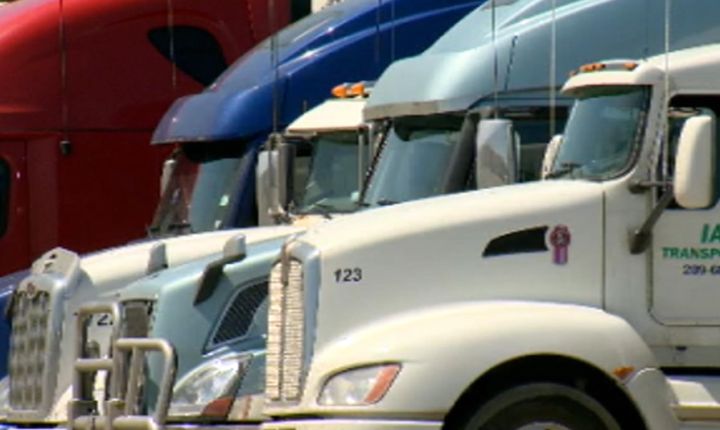Saskatchewan is making temporary changes to its hours of service regulations for commercial truck drivers due to the COVID-19 pandemic.

The changes will exempt drivers from following aspects of the province’s hours of service regulations for commercial vehicles when transporting essential supplies.
Essential supplies include:
- Medical supplies and equipment related to testing, diagnosis and treatment
- Supplies and equipment necessary for community safety and sanitation, such as masks, gloves, hand sanitizer, soap and disinfectants
- Food, paper products and other groceries for emergency restocking of distribution centres or stores
- Raw materials, such as paper, plastic or alcohol, required for the manufacture of medical supplies, sanitation items and safe distribution of groceries
- Fuel
- Equipment, supplies and people to establish and manage temporary housing, quarantine and isolation facilities
- People designated by federal, provincial/territorial or local authorities for medical, isolation or quarantine purposes
- People needed to provide other medical or emergency services
Despite the changes, the province is still recommending drivers to keep track of the number of hours driven.
It suggests drivers take a break of 24 hours after 14 straight days of work. At the end the pandemic, drivers will be required to take off eight hours before returning to the road.
The province is also exempting drivers from the 14-day isolation period after returning to Saskatchewan.
- Train goes up in flames while rolling through London, Ont. Here’s what we know
- Wrong remains sent to ‘exhausted’ Canadian family after death on Cuba vacation
- Liberals having ‘very good’ budget talks with NDP, says Freeland
- Peel police chief met Sri Lankan officer a court says ‘participated’ in torture
Drivers are asked to continue to practise handwashing, social distancing, self-monitoring and self-isolation if exhibiting any symptoms of COVID-19.
Questions about COVID-19? Here are some things you need to know:
Health officials caution against all international travel. Returning travellers are legally obligated to self-isolate for 14 days, beginning March 26, in case they develop symptoms and to prevent spreading the virus to others. Some provinces and territories have also implemented additional recommendations or enforcement measures to ensure those returning to the area self-isolate.
Symptoms can include fever, cough and difficulty breathing — very similar to a cold or flu. Some people can develop a more severe illness. People most at risk of this include older adults and people with severe chronic medical conditions like heart, lung or kidney disease. If you develop symptoms, contact public health authorities.
To prevent the virus from spreading, experts recommend frequent handwashing and coughing into your sleeve. They also recommend minimizing contact with others, staying home as much as possible and maintaining a distance of two metres from other people if you go out.
For full COVID-19 coverage from Global News, click here.





Comments